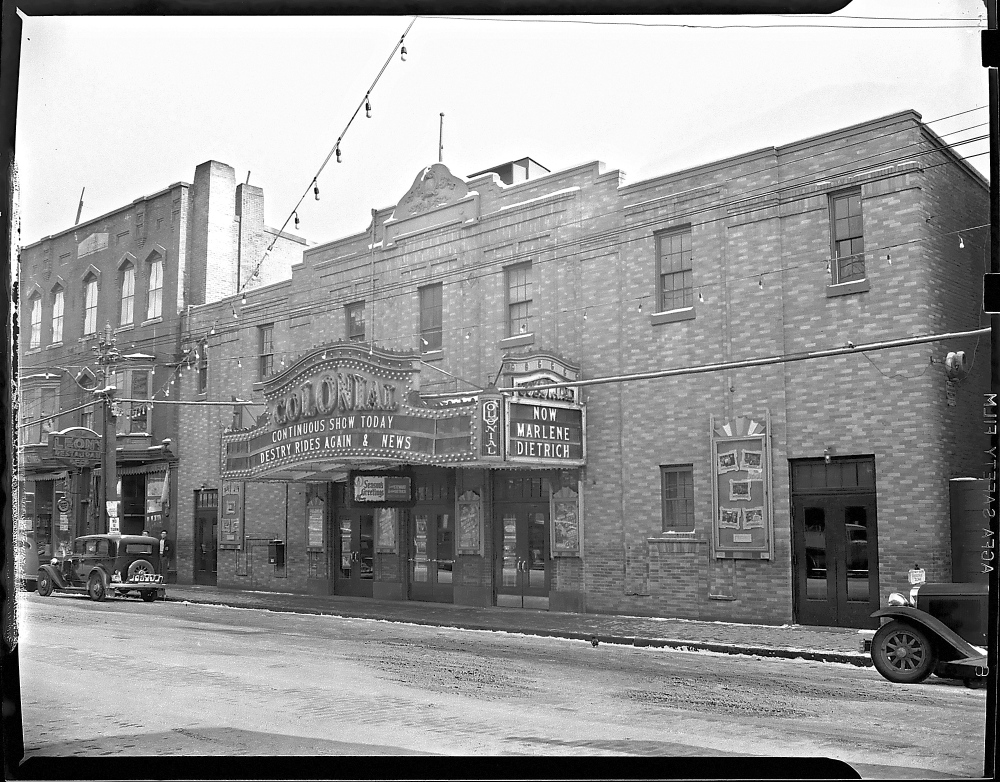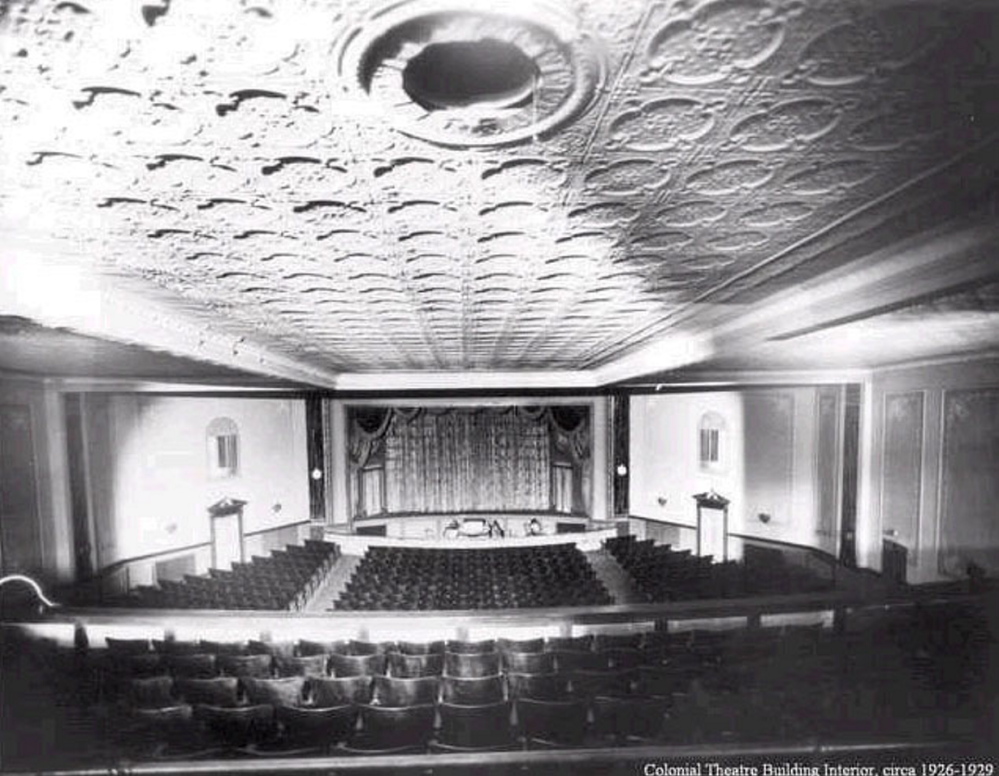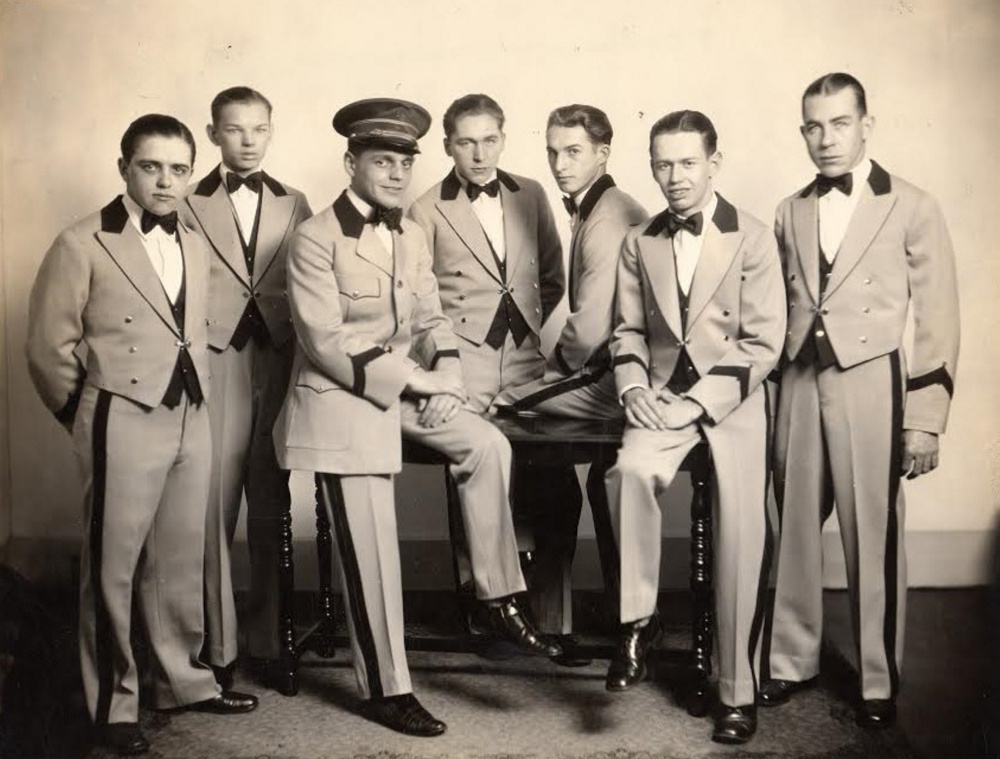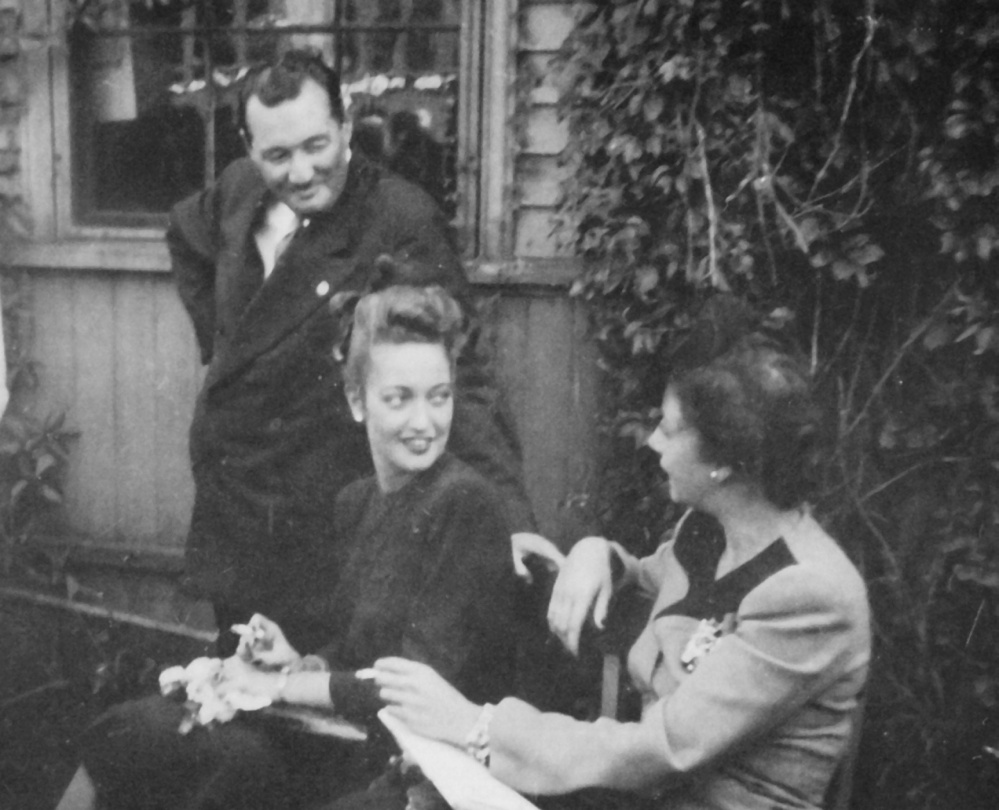AUGUSTA — As a boy, Bill Williamson was allowed to bring one friend with him to see movies, for free, at the Colonial Theatre, which was built in 1912 and rebuilt after a fire in 1926 by his grandfather, the late William B. Williamson.
Boys being boys, the downtown Augusta theater owner’s grandson found a way to get more than one friend into the movies. After entering with a friend through the main entrance, they’d check in with the manager and take their seats. Then he’d make his way over to a side door that opened onto an alley accessible from Water Street. There, three or four friends quietly waited for him to let them in. That scheme worked until one day in the 1950s when the theater’s manager, Bob Stevens, saw what was going on and, wagging his index finger, beckoned the younger Williamson in for a chat in which he told him to knock it off.
Williamson’s grandfather was just 20 years old when, with support from William P. Gray, president of the Maine-New Hampshire Theatres Co. and J.C. McDonough, he purchased the site of an earlier movie house that had burned down, formed the Maine Theatre Co., and built the first Colonial Theatre, which opened in 1913.
He was so young his parents had to sign the incorporation papers for the company, according to Phyllis vonHerrlich, a local historic preservation advocate and member of Augusta Colonial Theater Inc., the nonprofit group that owns the building.
“He was very connected,” vonHerrlich said of how someone so young was likely able to get the theater built. “Others were involved, but he was the driving force, even though he was very, very young.”
Bill Williamson, now 67, said his grandfather built the Colonial after he dropped out of Bowdoin College. He never returned to Bowdoin after he built the theater and remained in the movie business for decades, owning the Colonial until his death in 1962.
The Colonial Theatre — sometimes spelled “Theater” — continued showing movies until it closed in 1969. The following year, a cinema opened at a shopping center on Western Avenue.
‘MOST IMPORTANT CINEMA’
The building was placed on the National Register of Historic Places in 2014.
The application for placement on the registry, written by preservationist Christi Mitchell, an architectural historian and assistant director of the Maine Historic Preservation Commission, notes the building is significant as the last surviving movie theater in downtown Augusta and “as an eclectic example of early twentieth (century) design by a noted architect in downtown Augusta and … in recognition of the establishment’s lengthy significance as the town’s most important cinema.”
In 1970, William B. Williamson’s brother sold the property to local developer Edward Gall, who used the building for storage until he sold it to the nonprofit Colonial Theater Inc. in 1997 for $76,800, according to city assessing records.
The first Colonial was designed by architect Harry S. Coombs, at the time one of Maine’s most well-known architects. A fire damaged it extensively in 1926. It was rebuilt, bigger but in the same spot, using a design by architects Bunker and Savage. However, Mitchell noted in the application that research determined much of the original facade and many other aspects of Coombs’ design remain.
The 1913 theater cost about $20,000 to build, and it cost about $125,000 to rebuild and expand it after the fire in 1926, according to vonHerrlich.

Actress Dorothy Lamour, center, visited Augusta in 1942 to promote the sale of war bonds. Lamour starred in a series of films with Bob Hope and Bing Crosby in the 1940s.
The application to place the Colonial on the national registry notes it was built in 1913 to replace Augusta’s first movie theater, the Comique, which was built on the same site between 1903 and 1910. Initially the Colonial showed silent films and had an orchestra pit in front of the stage. At some point the stage was extended over the orchestra pit, and a sound system capable of playing audio for movies was added sometime shortly after World War I.
In 1919, Massachusetts Kennedy family patriarch Joseph P. Kennedy purchased the Maine-New Hampshire Theatres Co., making Williamson and Kennedy partners in a theater business that owned multiple New England theaters.
Kennedy later went on to become a mogul of the movie business, and his offspring included President John F. Kennedy and several other political powerhouses.
Maine author and film producer Holman Day made a number of films in the Augusta area and premiered them at the Colonial. A then-teenage Mary Astor, in 1919, got her start in the movies making a series of six films based on Day’s novels that premiered at the Colonial, according to theater supporters. She later would go on to star with Humphrey Bogart in “The Maltese Falcon” in 1941.
According to a history of the theater on the Colonial’s website, augustacolonialtheater.org, actress Dorothy Lamour made an appearance there during World War II for a war bond drive.
Bill Williamson, who lives in Portland and is president of Bank of America’s operations in Maine, said in the 1930s his grandfather hired Frederick Payne to manage the theater, which he did for several years. Payne later was elected governor of Maine and a U.S. senator. William B. Williamson worked as Payne’s chief of staff in Washington, D.C.
Williamson also ran the other theater in Augusta’s downtown, the Capitol Theater, which was on Market Square and was torn down in the early 1980s. And he ran Island Park on Cobbossee Lake, which hosted big band concerts and dances.
“He loved entertainment. He was a very gregarious guy,” Bill Williamson said of his grandfather. “And very involved in politics. He was a character.”
PIQUED INTEREST
Williamson said he kept an eye on the theater over the years as it sat largely neglected. He stopped by two summers ago when he was in Augusta on business and saw that the door was open.
He went inside and met a young man doing some repair work inside the theater, who told him about Richard Parkhurst and local efforts to restore, repurpose and reopen the theater.
He went to see Parkhurst, whom he’d never met, and ultimately agreed to serve as co-chairman, with Parkhurst, of the fundraising campaign for the restoration of the theater.
He said he’s talking with family members about making a contribution, as a family, to the theater project in his grandfather’s name.
“I’m really excited about what they’re trying to do with it now. I think it would be a huge asset, not just for Augusta, but for the region,” he said. “It would have been great if we’d done what we’re trying to do now, at an earlier time. We want to help them raise money, very much so. It’s important to me and my family. And it would be great for the downtown. I look at the theater as the anchor tenant for downtown. If you get the theater done, and done right, it should really pull people in.”
Keith Edwards — 621-5647
Twitter: @kedwardskj
Send questions/comments to the editors.







Success. Please wait for the page to reload. If the page does not reload within 5 seconds, please refresh the page.
Enter your email and password to access comments.
Hi, to comment on stories you must . This profile is in addition to your subscription and website login.
Already have a commenting profile? .
Invalid username/password.
Please check your email to confirm and complete your registration.
Only subscribers are eligible to post comments. Please subscribe or login first for digital access. Here’s why.
Use the form below to reset your password. When you've submitted your account email, we will send an email with a reset code.